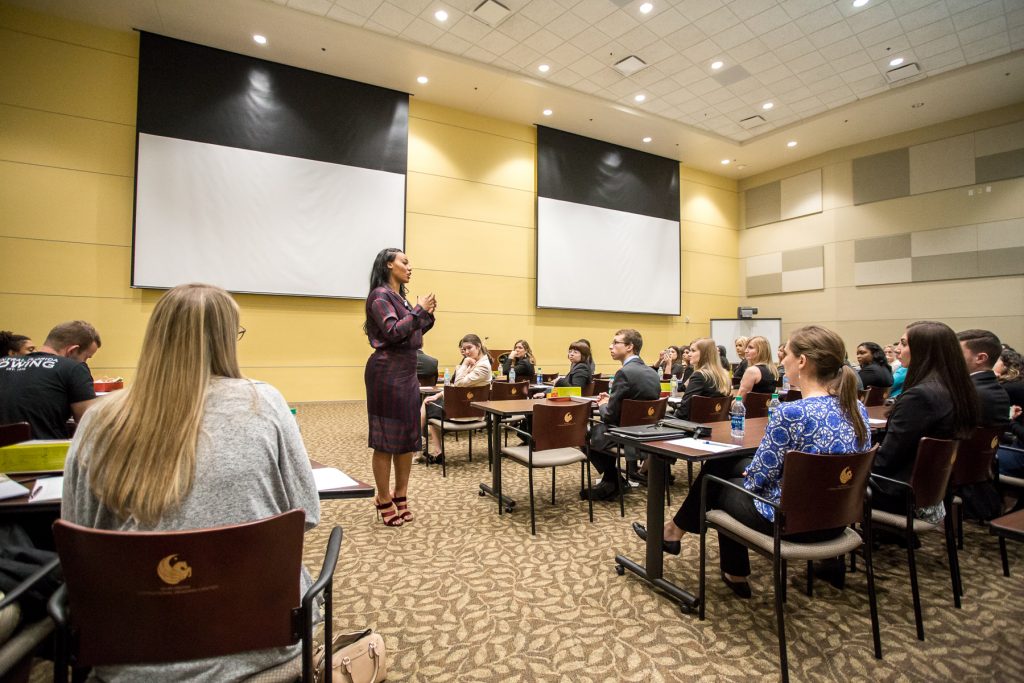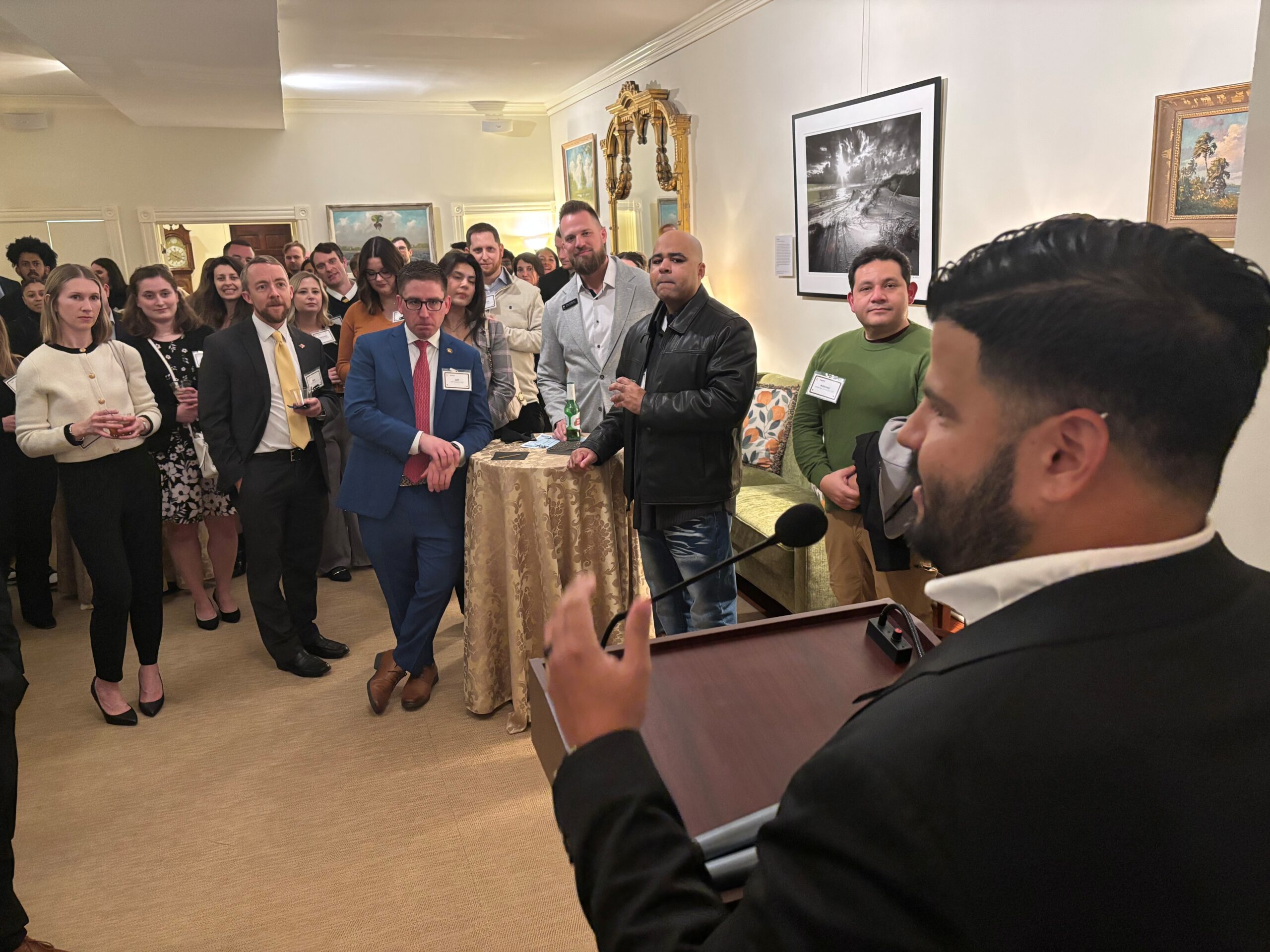UCF Alumni Michi and Brandon Marshall’s Mission for Mental Health Awareness

By Jenna Marina Lee
ORLANDO, Fla. (Oct. 25, 2017) – The day that NFL star wide receiver and UCF alumnus Brandon Marshall ’06 went public with his borderline personality disorder diagnosis in 2011, his wife, Michi Marshall ’06, remembers turning to him and saying that his diagnosis was going to help someone.
They knew immediately they needed to organize and mobilize their mission to bring awareness to mental health.
“There was no pause. And we’ve had our foot completely down on the gas pedal ever since,” she said.
It’s what brought the UCF alumna back to her alma mater Oct. 20 where she discussed her work with the Marshalls’ non-profit Project 375 and fielded questions from the audience, who included counseling education majors, faculty, staff and College of Education and Human Performance Dean Pamela Carroll.
The daughter of a clinical psychologist, Marshall earned bachelor’s degrees in psychology and criminal justice in addition to three certificates from UCF.
“When I came here, I was so unsure of myself. When I graduated I was very sure of myself,” she said. “I knew exactly what I wanted to do. I knew exactly how I could be who I wanted to be. UCF truly gave me the resources that I needed.”
Yet, she never predicted just how significantly her education would shape her future.
She met Brandon on campus during their undergraduate days. He saw her walking across the Student Union and told his friend that he was going to marry her one day. She described Brandon back then as jovial, fun-loving and always with a smile on his face.
They dated, separated and reconnected, eventually marrying in 2010. Marshall said she noticed the smallest shift in Brandon from his college days. She attributed it to the stress of an NFL career, or perhaps typical relationship issues that couples experience.
She wasn’t looking for something to pinpoint as a mental health disorder.
“In fact, it’s not healthy to categorize all that (as a professional in the field) because everybody you know would have a diagnosis,” she said. “I thought it had something to do with me.”
After Brandon sought help and was diagnosed, they knew they possessed all the elements to effect real change.
They had the personal experience of living daily with a mental health disorder. They had an education in psychology. They had a national platform because of Brandon’s status as a six-time Pro Bowl selection and NFL veteran.
Most importantly, they had each other.
“We don’t take it for granted at all. And we try and use every single resource that’s available to us in order to further the mission in getting mental health to be a normal, everyday conversation,” she said. “It’s truly remarkable that we’re able to do this together.”
Their non-profit organization, Project 375, offers training in various areas of mental health from coping strategies to stigmatizing language to distinguishing the signs of a disorder. The organization’s name comes from the pantone number for the color lime green, the official color of mental health awareness.
Their focus is nation-wide. Marshall said Project 375 has hosted 30 trainings to roughly 500 individuals this year. In 2018, the organization intends to reach international audiences.
“We use education and inspiration and communication to teach people from everyday walks of life what mental health is,” she said. “It knows no race, it knows no financial status, it knows no gender, no success. It affects one in five and it’s something that needs to be an everyday, normal conversation.”
Her hope, she told the counseling education professionals in the room Friday, is that they will be the ones to lead those conversations in the near future.
“When you go into your field of work, I want you to be encouraged and really be understanding of your role in this fight. Your role in this is not only being a caretaker. It’s not only a first responder, it’s also being an educator to those who do not know about mental health,” she said to the crowd. “This generation is the generation that is going to break the stigma for mental health.”


